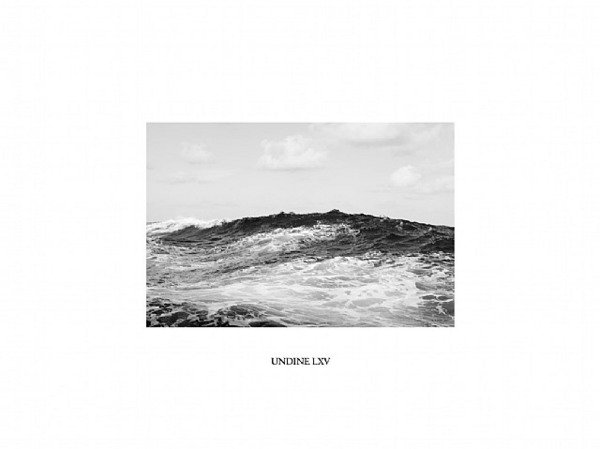Elger Esser
dal 20/6/2012 al 7/9/2012
Segnalato da
20/6/2012
Elger Esser
Galeria Kewenig, Palma de Mallorca
The artist has chosen photographic works with a water motif. In peaceful views of river landscapes, sea coasts as well as urban views, water recurs as a motif throughout Elger Esser's oeuvre.

The Galería Kewenig is pleased to show for the first time works by the German artist Elger Esser.
Esser was born in Stuttgart in 1967 and grew up in Rome. For his exhibition at the Galería Kewenig, he has chosen photographic works with a water motif. In peaceful views of river landscapes, sea coasts as well as urban views, water recurs as a motif throughout Elger Esser's oeuvre. His interest in historical landscapes bundles the tonality of colours and the sfumato of humid air, lending him the reputation of the romantic among photographers of the Düsseldorf School. He transfigures the views into the medium of photography, while at the same time preserving reminiscences from the history of art such as painted Italian vedute, German romantic painters and pioneers of French landscape photography from the period around 1900.
In the cycle Undine from 2012, Esser fixes the unique moment of a wave breaking, releasing the charge in each wave (Latin: unda) in its own way. The ones-of-a-kind came about during a sea voyage Esser took on the research ship Meteor in the Atlantic Ocean. The Undine (mermaid) photographs have been executed as ultra-chrome prints and, in dedication to the uniqueness of each wave, are unique and numbered by Roman numerals. The works that arose during Esser's voyage will be shown for the first time also in a museum context at the Landesmuseum Oldenburg, from July 2012 on.
A collection of about twenty-five thousand postcards and anonymous photographs put together by Esser since his student days shows mainly the motif of a view from the French Atlantic coast onto the ocean. In the exhibited work 13 Île Sainte Marguerite (2005, Cprint, Diasec®Face, Forex), Esser transforms the motif of stormy waves by enlarging and manipulating a certain detail of a postcard. The work 6 Dieppe is also an enlarged postcard motif that was subsequently coloured by hand (2007, black-and-white print, hand-coloured). In the appropriations of historical views that have come about in this way, the aura of old mastery is maintained. Esser employs modern photographic techniques to hold onto the memory of irretrievable landscape phenomena and past photographic techniques, and also to fill his views with sublimity, something seldom achieved in today's photography.
In Joudy (2003, C-print), which likewise is on show, with a view of the sea taken from a great distance, Esser succeeds in translating the view into abstraction by means of an especially light printing procedure in the laboratory. The sea spreads out in the chosen detail with great calm behind a still coast of surrounding alluvial plain. The transition from land to water takes place virtually as the image’s dissolution. The yellow tone gives the view of the beach a slightly antiquated effect and raises it above any definable time. The faded colours have the effect of a vanishing memory that is slowly dissolving in the poetic vastness of the motif in favour of a generally calm feeling.
Elger Esser lives in Düsseldorf. From 1991 to 1997 he studied at the Düsseldorf Art Academy with Bernd Becher; in 1996 he was accepted in the master class and attained his diploma in 1997. From 2006 to 2009 he was a professor at the Karlsruhe University of Art and Design in the Department of Media Art. This was followed in 2008 by a guest professorship for photography at the Folkwang School in Essen. In 2010 Elger Esser won the Rhineland Art Prize and in 2012 he was awarded a working scholarship for the Hanse- Wissenschaftskolleg (HWK) at the Institute for Advanced Study in Delmenhorst. Since the mid-1990s his works have been shown in many exhibitions in both national and international museums, and also have found their way into international collections and museums, including the Solomon R. Guggenheim Museum (New York), the Metropolitan Museum of Art (New York), the Stedelijk Museum (Amsterdam), the Stiftung Museum Kunstpalast (Düsseldorf), the Kunsthaus Zürich, the Fonds national d’art contemporain (Paris), the Centre Pompidou (Paris), the Städtische Galerie in Lenbachhaus (Munich), the Kunstmuseum Stuttgart as well as the Museum of Modern Art Salzburg.
Opening on 21 June at 8 p.m. which the artist will attend
Galería Kewenig
Oratorio de Sant Feliu C/ Sant Gaietà, 4a - Palma de Mallorca
Opening hours: Mon–Fri 10 am–2 pm, 4 pm–8 pm, Sat 10 am–2 pm
Free admission



